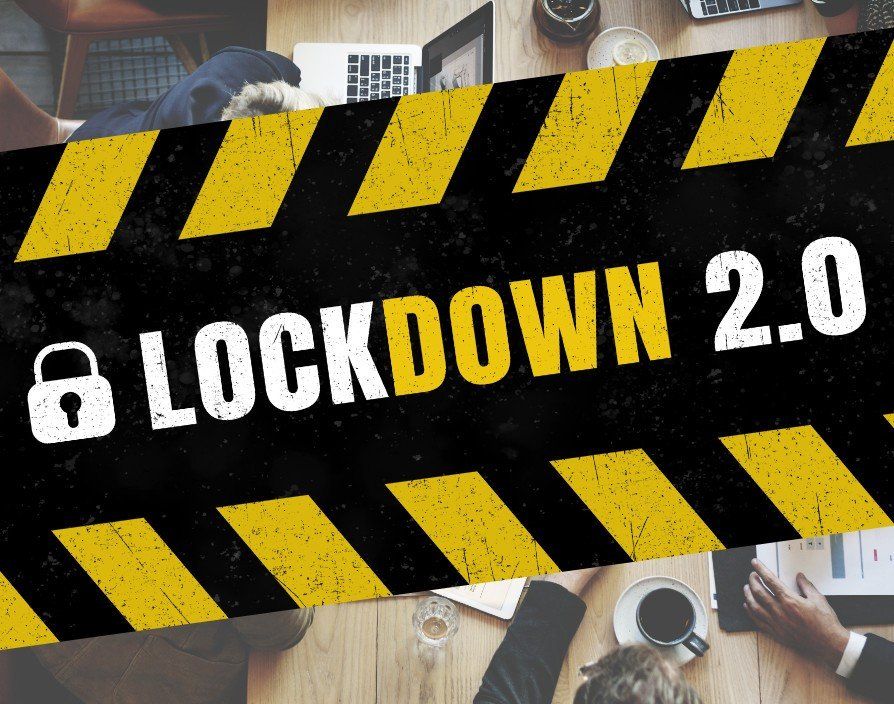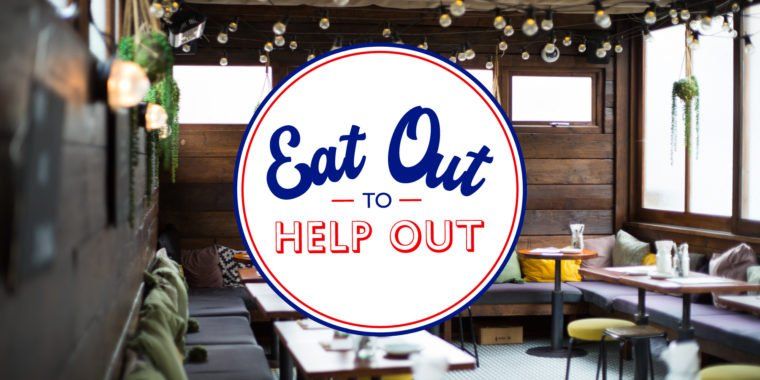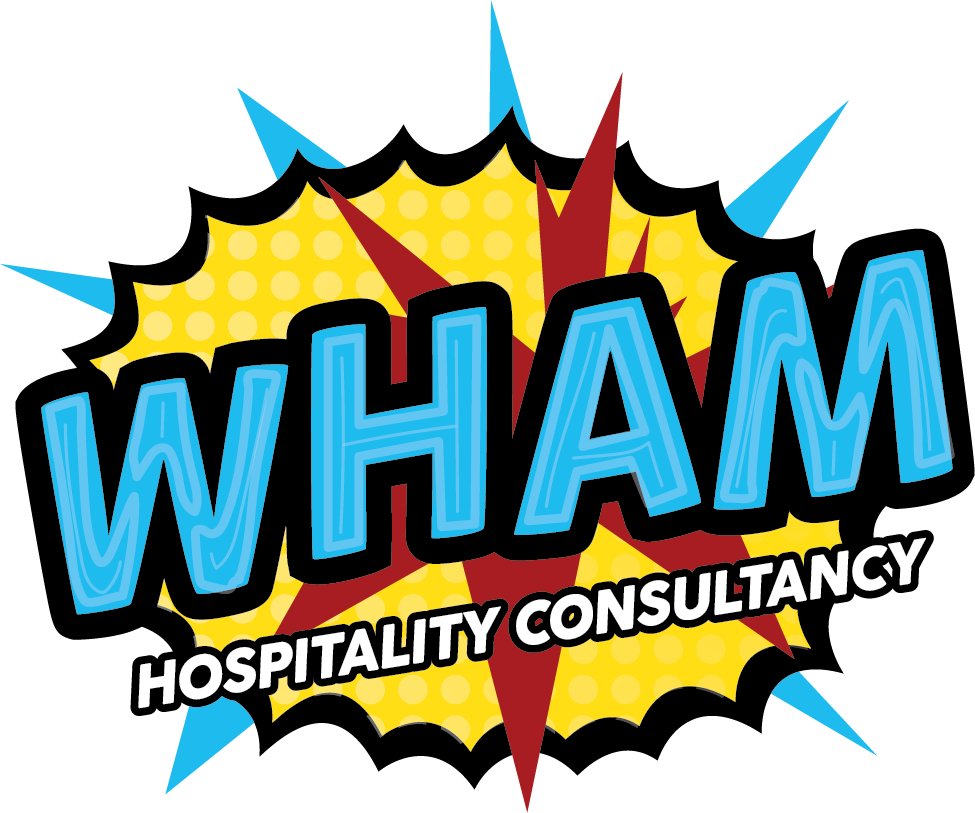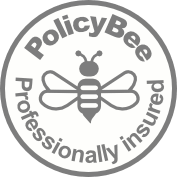Latest Hospitality News & Insight
Blog

Yet again the Late Night hospitality sector finds itself on the brink of further legislation aimed at slowing the spread of COVID, in this case the Omicron variant. It is expected that the guidance laid out below will come into effect in England from 6am Wednesday 15th December 2021. To help keep you up to speed I've summarised the key points below. I've also produced a quick and easy-to-follow checklist to help supplement the information below. You'll find that at the end of this article. Q: What do I have to action as the 'responsible person' for my venue? Each venue will have a responsible person who must comply with a number of obligations relating to the requirement to use the NHS COVID Pass as a condition of entry. This person should check where responsibility for data protection lies in their organisation. You are the responsible person for a nightclub, dancehall, or discotheque, or other venue open after 1am with alcohol, music and dancing, if you are the venue manager. Q: Does my venue need to carry out checks on entry? Venues and events where the NHS COVID Pass, or alternative proofs of COVID-19 status, must be used as a condition of entry are: nightclubs, dancehalls and discotheques other late night dance venues, where all of the following apply: the venue is open between 1am and 5am it serves alcohol after 1am it has a dancefloor (or space for dancing) it provides music, whether live or recorded, for dancing Q: What do I need to do? Organisations must take reasonable steps to make sure that all visitors aged 18 or above show an NHS COVID Pass, or approved proof of vaccination, testing, or an exemption, to enter the venue or event. Evidence of natural immunity must not be accepted as an alternative to proof of vaccination or testing. Q: Do I need to test my Team? COVID-19 status checks are not mandatory for workers, but organisations should take reasonable steps to make sure that all adults working or providing services (as an employee, contractor or volunteer) in customer-facing roles show evidence of one of the following: a valid NHS COVID Pass an acceptable alternative proof of either vaccination, clinical trial participation, or medical exemption, for example, international equivalents accepted at the UK border an alternative proof of a negative COVID-19 test result, for example, text or email confirmation from NHS Test and Trace Q: Are there any scenarios where I don't need to check on entry? There are some situations where nightclubs, dance halls, discotheques and other late night dance venues do not have to use the NHS COVID Pass. These are: nightclubs, dance halls and discotheques which close their dancefloor, or cease to provide music other late night dance venues when operating outside of the hours of 1am to 5am, or which close their dancefloor, cease to provide music, or cease serving alcohol between the hours of 1am and 5am Nightclubs, dancehalls and discotheques are required to check the COVID-19 status of visitors at all times, unless hosting an exempt event. If you operate a venue in the category of other late night dance venue, you must take reasonable measures to make sure that all visitors who are present in your venue between the hours of 1am and 5am have the NHS COVID Pass (or other accepted evidence), even if they entered the premises before that time. Venues can choose what measures to put in place, and whether checks should begin from either: the time the venue opens the time the rules apply (from 1am) Whichever option is chosen, you must make sure you’ve taken reasonable steps to make sure that all visitors who are in the venue between the hours of 1am and 5am have the NHS COVID Pass (or other accepted evidence), even if they entered the premises before that time. Q: How do I carry out a check? In settings where it is mandatory to use COVID-19 status checks as a condition of entry, you are expected to take reasonable measures to ensure that all attendees aged 18 or above have the NHS COVID Pass (or approved international equivalent) or have valid proof that they have completed a negative PCR test or negative rapid lateral flow test within the past 48 hours. Those relying on testing to prove their COVID-19 status are strongly advised to take tests as late as possible before attending the event, ideally within 12 hours, to strengthen the protection testing provides. It is also strongly advised that workers aged 18 or above who come into contact with customers have the NHS COVID Pass (or approved international equivalent) or have valid proof that they have completed a negative PCR test or negative rapid lateral flow test within the past 48 hours You should communicate these requirements clearly with your customers, so they know what to expect when visiting your venue. This could include notifying customers of the requirement to show their NHS COVID Pass on your promotional materials and website, informing those who make telephone enquiries or adding the information to tickets, as well as providing information on the steps required to comply with entry requirements. As a responsible person of a venue or event, you must take reasonable measures to ensure that only attendees with the required NHS COVID Pass (or other accepted international evidence) or a negative test result enter your venue. If you are checking passes using the NHS COVID Pass Verifier App, as recommended, you will be processing personal data and therefore you will have obligations as a data controller under data protection legislation. See the ‘Data protection’ section at the end of this page. Q: How do I validate an NHS COVID Pass? You should check for proof of COVID-19 status through use of the free NHS COVID Pass Verifier App wherever possible to ensure passes are valid and have not expired and reduce the possibility of fraud. This provides the most secure verification of an NHS COVID Pass and passes from the rest of the UK and 62 countries that are part of the EU gateway, by scanning the 2D barcodes. The NHS COVID Pass can also be visually checked, but to reduce fraud we recommend the use of the NHS COVID Pass Verifier App. Text or email proofs of a recent test should be visually checked. You’ll find full details on how to use the NHS COVID Pass Verifier App on the NHS website. The NHS COVID Pass Verifier app is recommended to check the NHS COVID Pass. If you choose to not use the Verifier App, you’ll need to ensure that attendees’ NHS COVID Passes are checked visually for an expiry date and a shimmer animation that confirms a Pass is live and not screenshotted. You should check the online NHS COVID Pass where possible but can also check the wallet (which does not have a shimmer animation). Read more information on anti-fraud measures . Q: What if a guest isn't using the NHS COVID Pass? Those not using the NHS COVID Pass and accessing settings by showing alternative proof of a negative PCR test or negative rapid lateral flow test taken within the past 48 hours must have reported their test result to NHS Test and Trace. They will then have received a text or email notification which should be checked as a condition of entry. A valid notification of a test result from NHS Test and Trace should include all of the following: the name of the person who took the test their age or date of birth the date the test sample was collected or received by the test provider confirmation that the test was either a polymerase chain reaction test or a lateral flow test confirmation that the result of the test was negative Q: What if an attending guest is from overseas? Where attendees to your venue or event are international residents, you should accept certain vaccination proofs from other countries. If the vaccination proof is accepted at the UK border, you should accept it at your venue or event. For more information, read the guidance on approved COVID-19 vaccines and countries with approved proof of vaccination . Q: Do I need to think about how I que for entry? Event organisers, venues and businesses should consider where a queue may interact with the public and engage with the local authority, owner or operator of the public space in order to manage queuing arrangements safely and effectively. Q: Do I need to check everyone or can I spot check? There are limited circumstances where it may not be reasonably possible for you to carry out COVID-19 status checks on all attendees at events where this is mandatory without endangering the safety of those attending the event or others. The overwhelming majority of events will check the COVID-19 status of all attendees. Spot checks may be used in the following limited circumstances if it’s not reasonably possible to check proof of COVID-19 status for all attendees at these events: 1. The event is: an indoor event with 500 or more attendees expected to stand or move around an outdoor events with 4,000 or more attendees expected to stand or move around any event with more than 10,000 attendees 2. The majority of attendees are expected to arrive for a fixed start time, where entrants are likely to all arrive in a short space of time. 3. It is not possible to set up checkpoints away from the entry points, and carrying out a check on every person would lead to a crowd gathering outside the venue or event. 4. That crowd would either present a risk to the safety of the persons in the crowd, or to any other person, or provide a potential target for terrorist action – read more information on hospitality security considerations In these circumstances, if it is not practical to check the NHS COVID Pass of all attendees, you must carry out an assessment of risk and determine the percentage of checks that can safely be carried out. The responsible person must submit this assessment of risk to apply to the relevant local authority at least 10 working days in advance of the event. The local authority will either approve the measure, ask for alterations or reject the proposal thereby requiring the venue to conduct 100% checks. If the local authority replies less than 5 working days before your event then the spot check application will be treated as approved. For events held between the 15 December and 31 December, event operators that meet the criteria and want to apply spot checks must submit an assessment of risk to their local authority. If the criteria are met and the submission made reasonable requests, spot checks can be used without local authority assessment. Q: What do I do if people cannot demonstrate their COVID status? If any of your adult attendees fails to produce adequate proof of their COVID-19 status you must not allow them to enter your event or venue. If anyone tries to breach entry to your event, without having proof of COVID-19 status, you should take the appropriate action to ensure the safety and security of all at the event. If any of your adult, customer-facing, workers fails to provide adequate proof of COVID-19 status where this is advised, you are strongly advised to not allow them to work at your venue or event until they have provided this evidence. Q: What happens if I don't carry out my legal obligations relating to checks on entry? If you do not comply with your legal obligations in relation to carrying out mandatory COVID-19 status checks at your venue or event, local authorities can take enforcement action, including prosecution or issue of a fixed penalty notice ( FPN ). There are various other enforcement tools that the local authority can use to ensure compliance. This includes issuing a Coronavirus Improvement Notice ( CIN ). This is often the first step that local authority enforcement officers use to require businesses to remedy unsafe practices. A CIN requires compliance by a date specified on the notice, which will be a minimum of 48 hours after issue. The date for compliance is determined by the local authority enforcement officer. If you fail to comply with the CIN , your local authority can issue a Coronavirus Restriction Notice ( CRN ), which enables it to close all or part of your business, venue or event. This could also be used to restrict the number of attendees at your event. The notice will apply for 7 days. Following the 7 day period of application, the CRN can be withdrawn or allowed to expire if you’ve taken the necessary steps to remedy the unsafe practices identified. If the necessary steps have not been taken then a new CRN can be issued against the same business, venue or event. Your local authority can alternatively use Coronavirus Immediate Restriction Notices ( CIRN ). This enables it to close the venue for an initial period of 48 hours. The local authority will be required to review the CIRN before it ends. It can be withdrawn or allowed to expire if you have taken the necessary remedial steps. If necessary, a local authority could issue you with a CRN at the end of the 48 hours to close the venue for a further 7-day period. Alternatively, where it is concerned that the premises is causing a serious and imminent threat to public health, a direction can be issued under the Health Protection (Coronavirus, Restrictions) (England) (No. 3) Regulations 2020, provided that the legal tests are met. Read more information on the No. 3 Regulations . If you fail to comply with any notice it is an offence and can result in a prosecution or issue of a fixed penalty notice ( FPN ). The fixed penalty for a first offence would be £1,000 (if paid within 14 days of the date of the notice, this can be reduced to £500), £2,000 for a second offence, £4,000 for a third offence and £10,000 for the fourth and any subsequent offences. You can appeal a CIN , CRN or CIRN to the magistrates’ court. Your appeal must be made in accordance with the Magistrates’ Courts Act 1980 and be made within the period of 28 days from the day on which the notice was issued or the review date. You cannot appeal a FPN , but can challenge it by way of judicial review in the administrative court. Q: What records do I need to keep? As a responsible person, you must produce, and keep up to date, a statement setting out the measures you will introduce to ensure that you are meeting the requirements of carrying out mandatory COVID-19 status checks, and that you are making the public aware of these measures. This should explain, where applicable, your spot check approach, if you have prior agreement from the local authority. You must also retain records containing the following information on implementing the requirements of carrying out mandatory COVID-19 status checks: the date of the event, or the date the records refer to for a venue the number of people that attended the venue or event where you have departed from your general policy statement of measures to meet certification requirements: the reasons for adopting different measures what measures were adopted how an individual’s eligibility to enter the venue was checked the number of occasions on which the reasonable measures you were taking to check COVID-19 status of attendees were varied from 100% checks by agreement with the local authority, and the number of people who were admitted on each such occasion the number of occasions on which people were admitted to avoid injury or harm If you are holding an event in a venue that has a capacity greater than the thresholds, but you do not use the NHS COVID Pass because you are not anticipating the number of attendees to meet or exceed them, you will need to produce a statement explaining how you intend to stay under the thresholds. You must maintain these records for 3 months from the date of the event or, for a venue, 3 months from the date to which the records refer. You must retain records of your general policy statement of measures to meet certification requirements for as long as the legislation on mandatory certification applies, and a further 3 months after it ceases to apply. Local authorities have powers to request these records or policy statements within 3 working days or as part of an inspection. You must not retain information from within the NHS COVID Pass, such as an individual’s name or COVID-19 status for members of the public who attend your venue or event. Q: What are my data protection responsibilities? If you are responsible for a venue or event that requires mandatory COVID-19 status checks as a condition of entry, data protection legislation will apply when you are processing personal data. You can find further information about looking after your customers’ personal data when completing COVID-19 status checks on the website of the Information Commissioner’s Office as well as information about complying with UK data protection legislation when carrying out workplace testing . Information about when the UK GDPR applies and on customer and employee consent can be found on its Vaccination and NHS COVID Pass checks page . The ICO has also published specific information for nightclub businesses and organisers of large events . You must also comply with the law when processing any special category health data. Further information can be found on the ICO website . Further information on the appropriate lawful basis for checking people’s COVID-19 status can be found in its guidance in Vaccination and COVID pass checks . When you use the Verifier App for the first time, you will be asked to accept the terms and conditions. Read the Verifier App user guide on the NHS website for more details. If you use the NHS COVID Pass Verifier App to scan an attendee’s NHS COVID Pass, as recommended, you will be processing personal data and therefore you will have obligations as a data controller under data protection legislation. A limited visual check of an NHS COVID Pass is not subject to data protection regulations . If your venue or event requires mandatory use of the NHS COVID Pass, you should communicate clearly with your customers, so they know what to expect when visiting your venue. This also includes how their data will be handled. Further information about privacy information can be found in the ICO ’s Right to be informed page.

Entrepreneurship is a beautiful, fickle beast. While it can lead to unmatched fulfilment, it also comes with seemingly countless challenges. And when you’ve suffered financial setbacks in the past, the thought of starting a business from scratch can be quite intimidating. However, most of the world’s leading entrepreneurs have failed time and time again. Conrad Hilton’s first venture was a bank that ended in bankruptcy within the first year. Wolfgang Puck struggled to find a job as a young man, proceeded to get fired after he finally landed a job, and then spent years going from restaurant to restaurant before his career took flight. Here’s the point: Financial hardship happens to most people at one point or another. And rather than destroy your hopes of being a successful business owner, it can put you at an advantage if you approach it the right way. If you have dreams of opening a business in the hospitality and leisure sector, don’t let your financial setbacks stop you. WHAM Consultancy is here with some practical tips for how you can harness your failures to establish a thriving, resilient business. Stop to reflect. Failure can be a good thing in the business world because it’s the best way to learn. Even if this is your first attempt at starting a business, you can take what you’ve learned from your personal financial setbacks and apply it to your business. To do this, however, requires you to confront your mistakes and reflect on them. Before diving any further into your business formation, take a little time to analyse your mistakes and think about things you could have done differently. Spend time with a mentor who can help you to navigate current challenges and prepare for those that will come in the future. Failure is normal for entrepreneurs. Embrace them. Spend time on your finances. You don’t want to launch a business on unstable ground. If your financial setbacks have left you in major debt, then work on tackling that debt as soon as you can. If you have bad credit, figure out how to raise your score . Sharpen your business plan. Make sure you have a stellar business plan. Few things are more crucial to the process of starting a business. Your plan should contain any information and details relevant to your company—anything that will show investors and other stakeholders that your company is worth their time and money. Think mission statement, core values, target market, marketing strategy, financial projections, etc. Then, go pitch your refined plan to score funding! Start establishing your brand. Too many entrepreneurs wait until “the perfect time” to deploy their marketing strategy. But here’s the thing, the sooner people start hearing about your company, the more time you have to build a following before you launch. So, get to work on creating unique branding that you can promote through your website, social media, mobile apps, and other channels. You can easily find qualified freelancers for marketing your brand. For instance, if you want to develop a mobile app that will help set your company apart from the competition, just look to online job platforms. There, you can compare costs , delivery times, client reviews, and more to determine the best web mobile designer for the job. Study the regulations. One final note: Research the regulations that will be involved in your business. And there are seemingly countless regulations for the hospitality and leisure sector. Take the time to study and learn them inside-out. Knowing the rules, laws, and expectations pertaining to health and safety will save you a lot of trouble. So, you’ve had some setbacks with money. That doesn’t mean you can’t launch the hospitality and leisure business of your dreams. Learn from your mistakes, shape up your finances, and put together a killer business plan. Start promoting your brand as soon as possible, and learn all of the regulations you will need to comply with. While there’s more to starting a successful business, these fundamental tips will help you form a strong foundation. Do you need top-notch consultancy for your hospitality and leisure business? Visit whamconsultancy.com today to learn about our services!

I've had a relationship with the guys at Imagesound Group for a number of years now. They've supported me brilliantly first hand with a number of my own openings as well as some of those I've supported clients with. It was a pleasure to catch up with Charlotte Brett for a natter and talk all things COVID, hospitality and music . I hope you find this an entertaining and insightful read! Click HERE for the article. See you at the bar! Mark

There is so much great operational advice on the web based from Lockdown 1 experiences that operators prepare for their Lockdown 2.0 closures with the lessons learnt back in March still relatively fresh in the memory. I did however come across this article from Malcom Muir of Venners who which gives a slightly different slant on a close-down strategy: "As hospitality operators prepare to go into another lock-down, businesses must rely on tighter controls to minimise losses and ride out the waves of continued uncertainty. The positive news is that operators can draw strength from the “lessons learned” following the lock-down in March. Operators should follow these steps to ensure they are ready to return to making a profit when the tide turns. Prepare a lock-down checklist 1. Every hospitality business should have a lock-down contingency plan containing a set of close-down procedures; a complete checklist of everything you need your sites to do before, during and after you close shop. These should address any problems that were raised during and after the lock-down in March too. Contacting suppliers that will take returns of stock should also be one of those procedures. Monitor completion of lock-down tasks 2. The more sites you oversee, the bigger the challenge to ensure that every site has taken the necessary steps to prepare for lock-down and minimise overall losses. Underperforming sites will drag down your overall GP and, therefore, need immediate correction. Compliance monitoring of close-down procedures across an estate should thus form a key part of your lock-down strategy. Expand your circle and help each other 3. Reinforce relationships with people in the industry before and throughout lock-down. As travel is limited, take virtual tours of the area online, join local forums and discussion groups. These can be great platforms for gathering ideas on how to get through lock-down, support your supply chain and help each other. Are there businesses nearby that plan to sell takeaways during lock-down? Could they take some of your shorter-dated stock in a safe and covid-secure manner? Alternatively, are there local charities that you could help? Complete a close-down stock take or stock count 4. Before you close shop, you need to know exactly how much stock on hand your sites hold. If you are not able to do it on the day you close the doors, completing one as you enter lock-down will also suffice. Whatever you do, do not skip your close-down stock count because it will make it impossible for you to identify levels of shrinkage endured during lock-down once it’s over. Carry out an inventory count 5. Get detailed data on all your storage areas. Inventory checks will ensure you know right from the outset exactly how much stock you’ll be writing off during lock-down, what you’ll be able to sell upon your return and how much you’ll need to order upon reopening. Perform a detailed cash count 6. Do a full float and safe check upon lock-down. It may be a good idea to reduce the float or bank all cash in order to eliminate any risk of loss. A full third-party cash and float check allows you to assess any variations from expected revenue income and present the reality of your cash on hold position nationally. Don’t neglect beer disposal and line checks 7. Complete beer and line checks at your sites to verify what scale of beer waste your venues will face. Equally important are checks made on waste management and compliant disposal of beer, by considering whether the correct processes were followed at your sites. Step up security 8. Ensure the right individuals hold the keys to your stock, cash and banking. Now, more than ever, you need to make sure responsible individuals and their supervisors are briefed to lock up all valuable stock and finances. Make sure your strategy outlines which individuals are authorised to attend sites and access these areas. Use the time effectively 9. Lock-down can be tough mentally, especially if it’s your own business with plans for the future at stake. Keep busy and make good use of the time personally. You have a chance to open as a better business than before. Were there weaknesses in the business that need to be addressed? Take this time to breathe and focus on future goals. Invest time in a training plan for staff, tidy up neglected areas of the business, or reach out for your painting overalls and get stuck in. Prepare a reopening checklist 10. Make sure that once a lock-down is lifted, your sites can return to business as usual as soon as possible. Don’t forget to plan a social media campaign to keep customers engaged and aware of your reopening date and offer. Have a list of all suppliers to hand and note which ones need to be contacted first upon reopening. Arrange for all eventualities, thinking through every scenario and establishing plans B and C where necessary too. Operators looking to get through lock-down with minimal losses should visit www.venners.com for further information." See you at the bar (in December!).... Mark

The following is an article written by Propel Insights Editor Mark Wingett. It sums up the sector's frustration with the finger of blame being pointed at it as the number of COVID-19 cases increases, argues that all is not as it seems with that perception, and why hospitality venues are some of the most COVID secure you can find: “We put this festival on, you b******s, with a lot of love! We worked for one year for you pigs! And you wanna break our walls down and you wanna destroy it? Well, you go to hell!” These were the words yelled down the microphone by Isle of Wight festival MC Rikki Farr in 1970, as a far from peaceful part of the circa 600,000 crowd was ready to riot and smash just about everything in its path. Farr’s passionate riposte has been playing in my head throughout the weekend, as another round of the government’s increasingly scattergun response to covid-19 was played out through leaked press briefings on what may happen next, and the hospitality sector, was again put blithely, and wrongly, forward as both scapegoat and sacrificial lamb. As Loungers chairman Alex Reilley tweeted: “It’s rather beginning to feel like there’s a Boris bus round the corner and hospitality is about to be thrown under it.” To which David Strauss, restaurant director at Rockfish, replied: “But it will just run over our leg so they can say we can continue to just limp along.” Many are already hanging on by the skin of their teeth. Either way it is a long way from a few months ago month, when chancellor Rishi Sunak was waiting tables at Wagamama in the midst of promoting the government’s Eat Out To Help Out (EOTHO) scheme. It is an even longer journey back to when Sunak was proclaiming he would do “whatever it takes” to save jobs and businesses. EOTHO was a huge stimulus to the on-trade in August, and while sales have inevitably dropped back in September, it created welcome momentum for the sector. However, with the new Rule of Six restriction on socialising starting soon after the scheme finished and mounting concerns about infection rates and local lockdowns, the sector was already facing a big challenge to preserve guests’ optimism about safety and spending in the second half of September, and now, it seems, for the foreseeable future.

With over 72,000 venues signed up to the Chancellor's initiative designed to get the hospitality sector moving again, I'm sat here wondering whether I'm the only one who's worried about the long-term impact of it's introduction. Some quick thoughts: ✅Many operators I'm speaking to are telling me bookings are very strong for these 1st 3 days of the initiative. I'm being told the same from the city centre well-known branded venues as I am the food-led, out-of-city-centre venues. ❌If you didn't have a strong food trade before this initiative, this isn't a magic-wand that is going to create one for you. ✅I 100% understand that this is about getting the top-line sales moving in a depressed economy, and (what is in effect ) 50% off is a well worn tool to do just that. ❌In my experience however finding an exit route out of using such a deep-discounting promotional mechanic is really difficult: 1️⃣you don't tend to see these new customers at times where you aren't discounting. 2️⃣existing customers will change their habits to visit during your discounted period now which affects margin in the long-term (not wholly applicable to this initiative I know). 3️⃣any new customers tend to not stick around and revert to their previous spending habits/return to their familiar venues. ❔This tends to lead to questions about whether to continue with a labour-intensive, lower margin business model to maintain the top line sales and 'work-out' how to survive on lower GP's, or return to the pre-promotion status quo. 🤷♂️I appreciate the times we find ourselves in are new and challenging, and the hope is that by the time this imitative ends the sector will be in a stronger economic position/recovery to off-set this (is anyone confident that this will be the case?), but if it doesn't, where does that leave us ? 🍷I hate to be glass-half-full on this topic, but for some operators I can see this being the dawn of false-hope. I hope I'm wrong. I'd be really interested to hear others' thoughts and opinions on this, and if you tell me I'm wrong, I'd never have been so happy to be told so!! Mark mark@whamconsultancy.com





